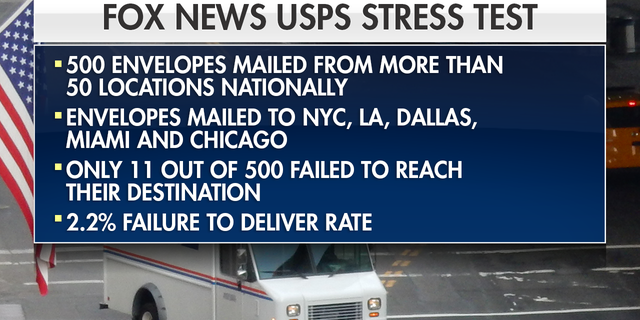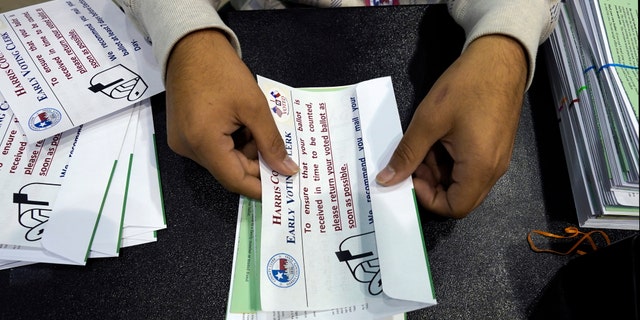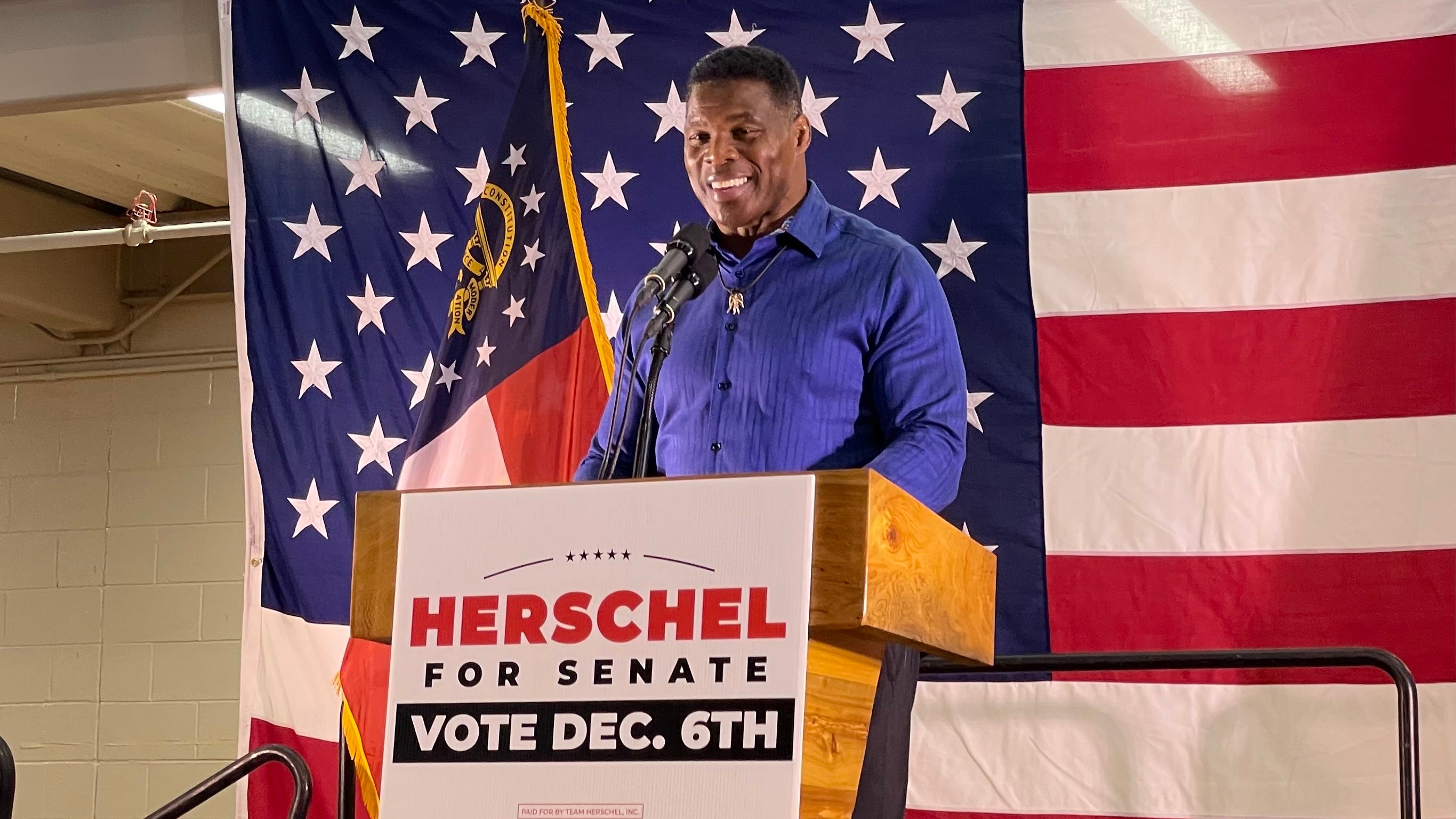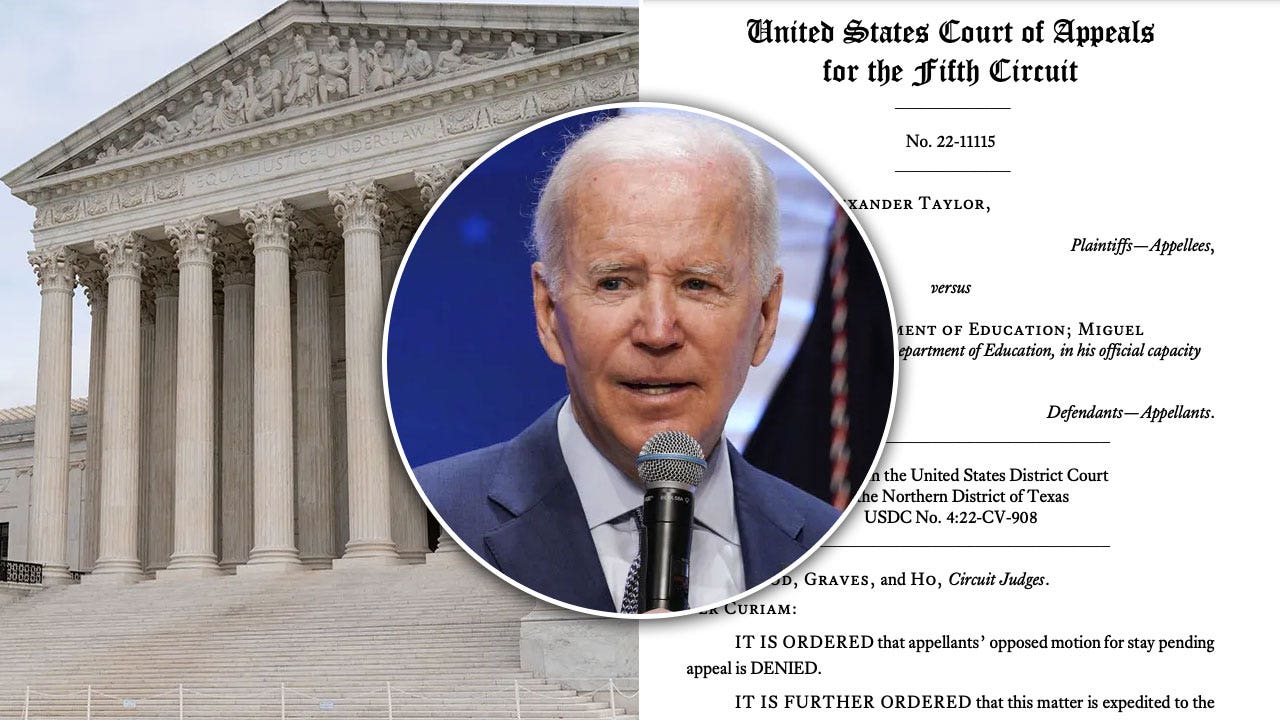Fox News put the usps-controversy” target=”_blank”>United States Postal Service<.
As part of a special investigation, senior correspondent Eric Shawn, the I-Unit and others sent 500 envelopes from more than 50 locations throughout the country to test how quickly they traveled between addresses, and to a single destination in us-regions.
A little more than two percent failed to reach their destinations, including nine envelopes that have not been delivered more than a month later.
A usps-controversy” target=”_blank”>USPS< mail, including ballots, as processed and delivered by the United States Postal Service in a real 2020-presidential-election” target=”_blank”>election cycle< already, one expert warned that any failure to deliver could have serious consequences.
Fox kept track of exactly 500 envelopes that were sent by producers in the New York City, Los Angeles, Miami, Chicago and Dallas metro areas. Out of that 500, 11 failed to reach their destinations. Two were returned to sender, and the other nine yet to arrive.
In each city, 100 envelopes were mailed from a variety of addresses.
Out of the 100 envelopes sent by producers in each metro area, 20 were addressed to a post office box in lower Manhattan that was monitored daily. The other 80 were sent to a single destination in each city that was also monitored.

Fox News tested the USPS ahead of the 2020 general election.
In New York, envelopes were mailed from locations within almost 70 miles of the destination. Delivery times there ranged from two to five days, and in many cases it was the envelopes traveling the shortest distances that took the longest amount of time to travel.
Some of the mail sent from one New York borough to another took just as long or longer to arrive than the envelopes sent to New York from Los Angeles.
The envelopes sent to New York from California ironically traveled the greatest cross-country distance of all of the test ballots, but arrived in the least amount of time of any in that same group.
Every envelope sent from or within the west coast reached its destination, with New York being the only other city where every envelope arrived at the correct location.
The Dallas metro area had some of the best in-state performance, but the envelopes that were sent cross-country took twice as long to travel as the envelopes sent from Los Angeles.
“The use of extraordinary measures beyond the normal course of operations is authorized and expected to be executed by local management between October 26 and November 24 to accelerate the delivery of ballots, when the Postal Service is able to identify the mailpiece as a ballot.”
— USPS spokesperson to Fox News.
Two of the envelopes sent from Dallas were also returned to sender, despite bearing identical postage to other envelopes that were successfully delivered to the intended address.
Chicago’s postal performance was perhaps the most consistent, although slower than some other cities. Nearly all envelopes traveling within the area, and to New York, arrived in about four or five days. The exception was a single envelope sent on Sept. 14 that still has not reached New York.
The state with the poorest performance in the Fox test was Florida where seven out of the 20 envelopes sent from the Miami metro area to New York still have not arrived as of Oct. 26. All of them were also sent on Sept. 14 and15, in a batch that was otherwise delivered in five days or less.
 Video
Video
Florida’s in-state envelopes arrived at their destinations within a week, with the exception of one that is still unaccounted for. Hurricane and tropical storm season also made precise tracking an issue in Florida and Texas.
In a statement, a USPS spokesperson, who is one of the Postal Services’ experts on election mail, told Fox that beyond working closely with state officials on the issue, the USPS “has allocated additional resources, including, but not limited to, expanded processing procedures, extra transportation, extra delivery and collection trips, and overtime, to ensure that Election Mail reaches its intended destination in a timely manner.”
Election mail also bears special official markings that differentiate it from standard mail and is expedited by law.

Harris County election worker Jose Vasquez prepares mail-in ballots to be sent to voters Tuesday, Sept. 29, 2020, in Houston. To be allowed to vote by absentee ballot in Texas, voters must be 65 or older; have a disability; or be outside the county where you’re registered to vote on Election Day and during early voting. (AP Photo/David J. Phillip)
(AP)
The spokesperson added that beyond additional resources, “the use of extraordinary measures beyond the normal course of operations is authorized and expected to be executed by local management between Oct. 26 and Nov. 24 to accelerate the delivery of ballots, when the Postal Service is able to identify the mailpiece as a ballot.”
The extraordinary measures the spokesperson referred to include expedited handling, extra deliveries and special pickups, which have been used in past elections, to connect blank ballots entered by election officials to elections, or completed ballots returned by voters entered close to or on Election Day to their intended destination. Those measures include Priority Mail Express, Sunday deliveries, special deliveries and running collected ballots to Boards of Elections on Election Day, etc.
“Some estimates are that there might be one hundred and fifty million people voting for president this year.”
— Barry Burden, director of Elections Research Center at the University of Wisconsin-Madison.
“Some estimates are that there might be one hundred and fifty million people voting for president this year,” Barry Burden, director of Elections Research Center at the University of Wisconsin-Madison, told Fox News.
Mail-in voting surged during the 2020 primaries, with a little more than 50 percent of voters casting a ballot by way of their mailbox. That’s an incredible influx of ballots when compared to the 27 percent mailed in the 2018 general elections and the 25 percent mailed during the 2016 general election, according to the Pew Research Center.
That’s why Burden believes “any failures of the postal service to deliver in a timely fashion are really problematic. They put a voter at risk of not having their ballot counted.”
 Iktodaypk Latest international news, sport and comment
Iktodaypk Latest international news, sport and comment






